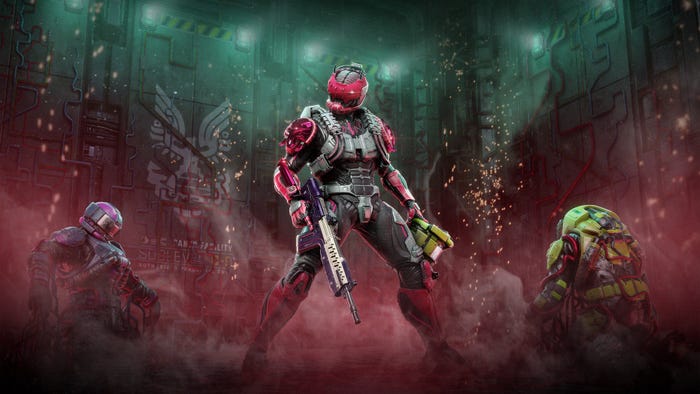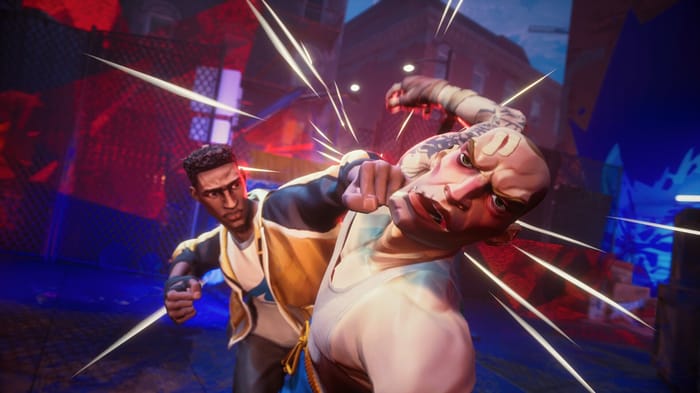Quadrilateral Cowboy dev on indie essentials and fluid game design
"I think the sweet spot is in making the thing you want to make, and having more than enough resources and skills to execute it."

To mark the release of cyberpunk heist adventure Quadrilateral Cowboy, creator Brendon Chung took to Reddit for an open door 'ask me anything' session.
During the candid conversation, Chung -- who founded L.A.-based indie studio Blendo Games in 2010 -- touched on everything from the realities of running a studio, self-education, and goofy game design.
To help you save time, we've picked out some of his most insightful answers and presented them below.
The business of game development
What are the most challenging aspects of game development? It's the classic question, but every developer will have a different answer.
For Chung, the biggest obstacle was getting his head around the idea that running a studio -- even a small one -- means you're actually running a business. You can't shirk those responsibilities.
"Getting into the mindset that business and marketing aspects require just as much resources and energy as the game itself. It took me a while to understand that," wrote the developer.
Offering advice to any fledgling game-makers keen to take their first tentative steps into the games industry, Chung laid down some ground rules.
"Be ruthless about scope control [and] be honest about what you and your team can do," he suggested, replying to a question about profitable indie development.
"I think the sweet spot is in making the thing you want to make, and having more than enough resources and skills to execute it."
Communicate and iterate
The artist, the designer, the programmer; in game development, everyone has their part to play, and one can't function without the other.
That, says Chung, is true of individual creators, which is exactly why communication is the most important component of any successful studio.
"Making sure that everyone knows what everyone else is doing, wants to do, and has done is tremendously challenging to do well. And I think doing this stuff well is the only way a project feels cohesive," he writes.
"It remains true for one-person teams. In this case, it becomes more about ensuring future-you and past-you remain coordinated."
Even cohesive teams can come unstuck, though, and sometimes a project just turns sour. With that in mind, quickly learning whether an idea is working is essential.
"When I get stuck on something, I find it useful to put the game in front of someone. Make the game playable without your intervention, and see if there's a spark when someone plays it," he says, explaining how to weigh a project's worth early on.
"[I'd also] suggest spending extra time up-front on improving tools, as adding and removing things from the game should be as frictionless as possible."
Bookending game design
Honing in specifically on how he builds-out his ever-expanding universe -- which all of his games inhabit -- Chung suggests the best way to construct a narrative is to give yourself as much freedom as possible.
That might mean doing less planning, or as he puts it, "feeling out" the details after you've hammered in the main fence posts.
"I usually have a clear idea of what you see and do when you first start the game, and a clear idea of what you see and do when you end the game. And then I feel out where things should go when I start building," he explains.
"I sometimes refer to my big document with dates and places, but for the most part the projects are organic and are allowed to find their own way."
It's even an approach he employs when naming his games, and Quadrilateral Cowboy is just the latest in a long line of bizarre ideas.
"I have a text document that I write all of my goofy ideas in," he adds. "Whenever I need something, I scan down the list and see what catches my eye."
Diversification as the ultimate goal
According to Chung, his grand plan is to create a game in every genre. Forcing himself to step outside of his self-made comfort zone isn't just a "hilarious and exciting" pastime, though, but a form of trial-by-fire education.
"I try to jump around to different game genres as much as I can. Partly because it's educational and helps me grow as a developer, but mostly because it's fun," he says.
"As a developer, it's exhilarating to be slightly out of your depth and have to improvise."
To hear more from Chung, and for a more in-depth breakdown of the procedures and protocols behind Quadrilateral Cowboy's hacking systems, check out our recent developer Q&A.
About the Author
You May Also Like









